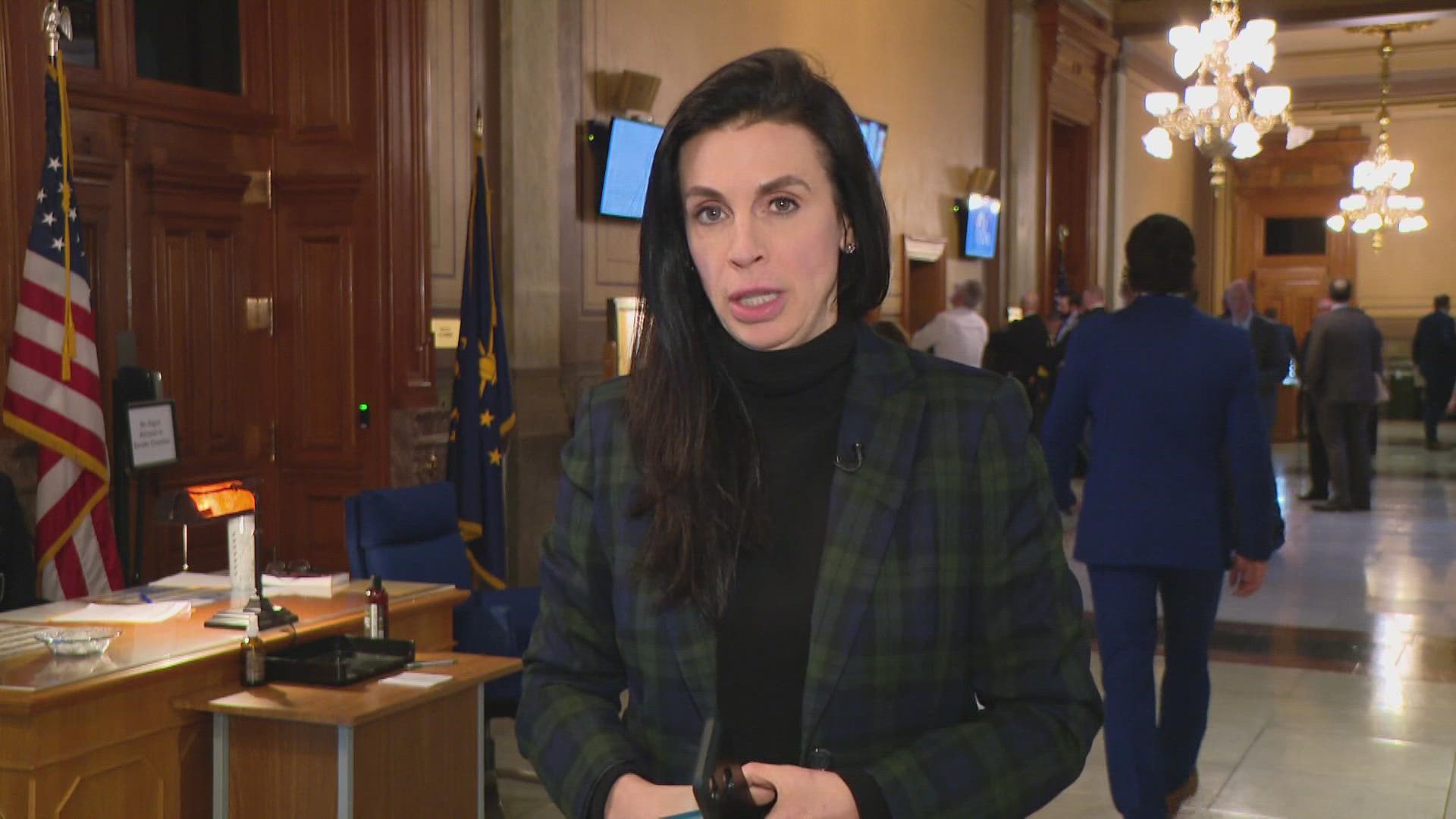INDIANAPOLIS — Indiana lawmakers are debating a resolution that would change the state’s constitution, a move that doesn’t happen overnight — it takes years.
The proposed Senate Joint Resolution 1 would amend Indiana’s constitution and would limit who can get a bail hearing after they’re arrested and charged with a crime.
Right now, there are only two crimes where someone isn’t automatically given the chance for bail: murder and treason.
The resolution was authored by Sen. Eric Koch, R-District 44. Under the proposed resolution, anyone charged with a crime who “poses a substantial risk to the public” would not be granted the chance for bail while they waited to go to trial.
Supporters say the change would protect Hoosiers.
“Our job is to protect Hoosiers,” said Sen. Mike Young, R-District 35, addressing lawmakers during session on Tuesday afternoon. “And the best way we can protect our citizens is keep these bad guys behind bars."
Critics of the resolution question what would be looked at when determining who was a “substantial risk.”
“There are no guidelines. There are no guardrails, and it essentially opens it up for any countless number of Hoosiers to fall within the realm of being denied bail,” argued Sen. Rodney Pol, D-District 4, who offered two amendments that would have listed what crimes someone could be accused of that would mean they couldn’t get a bail hearing.
“What this amendment does is it limits it to serious violent felony offenses,” Pol said. “It simply defines who the bad people are, and it provided notice to our Hoosiers as to who the bad people are. Those are the serious violent felons."
Both amendments were defeated Tuesday afternoon.
Lawmakers who wanted to see them added to the resolution said they would have helped define what a judge should consider a “substantial risk” if the proposed resolution becomes part of Indiana’s constitution.
“Some people consider me a substantial risk to the public,” said Sen. Greg Taylor, D-District 33. “Some of them sitting in this building. I just hope one day the substantial risk doesn’t apply to your child."
Senate Joint Resolution 1 is still far from making its way into the state's constitution. First, it would have to pass in this year’s General Assembly and next year’s in 2024. Then, a majority of Hoosiers would have to vote for it in the next general election that followed, which would be 2026.

